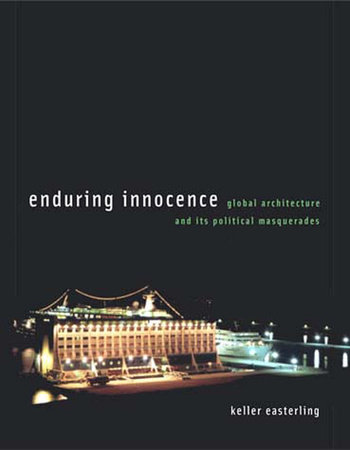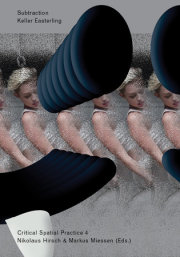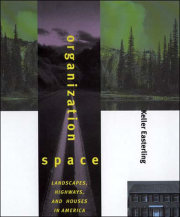A bracing and timely approach.... It frees us from the bankrupt notion that, as designers, we can merely venture to consider ethics and aesthetics as zero-sum alternatives.—
Thomas de Monchaux,
Architect's Newspaper—
[Easterling] successfully shows how organizational logics are providing generic specification for assembling spaces for North Korean tourism, Spanish high-tech agricultural landscapes, East Asian container ports, Indian IT (information technology) campuses, golf courses, retail franchises, pirates, and terrorism around the world.
—
Journal of Architectural Education—
Keller Easterling's Enduring Innocence charts a tour of the guilty pleasures of post-global network protocols.... Keller Easterling makes global capital palpable.
—
Mason White,
Archinect—
Enduring Innocence is a subtle and poetic mediation on the state of the contemporary world. The book exhibits the author's virtuosity in sifting through diverse landscapes.... The many urbanisms thus exposed provide us with a precise and complex platform for unraveling the nature of the global everyday.
—
Vyjayanthi Rao,
Constructs—
... Enduring Innocence is truly a tour de force tour-guide for today because it doesn't wield its case studies and field trips as paradigms that we should all now imitate (or even, morally avoid). Don't bother looking for a contemporary Acropolis. It isn't here. There is no easy prescription in Easterling's parables. No clear moral waters to wade through in the knowledge that it's only a Disney ride, that the sharks won't bite, and the mermaids will triumph.
—
Shumon Basar,
Domus—
Enduring Innocence makes three contributions to architectural discourse and more broadly to critical enquiry. It brings a new perspective to both visible and invisible objects, articulates a methodology commensurate with the questions posed, and speculates on the multiple guises that politically informed architectural intervention might take.
—
Building Research & Information—





